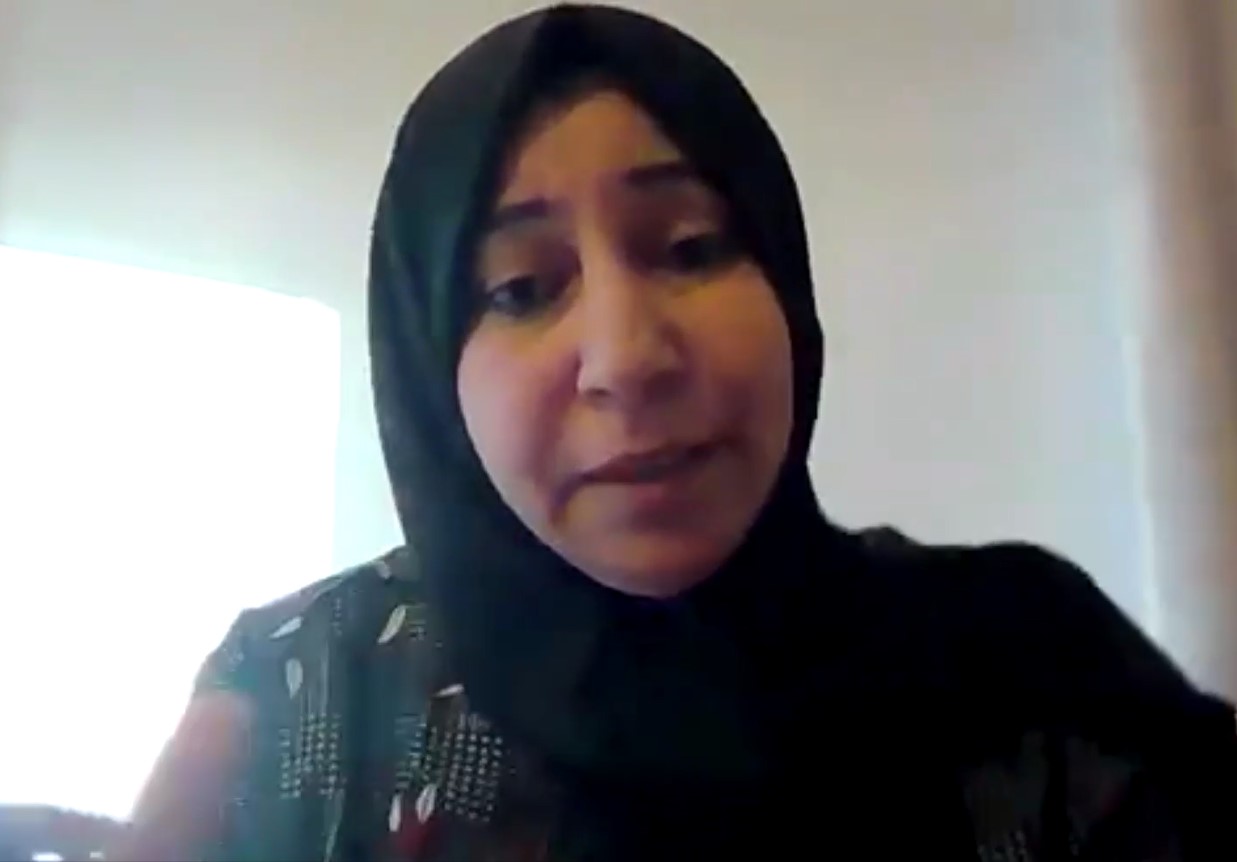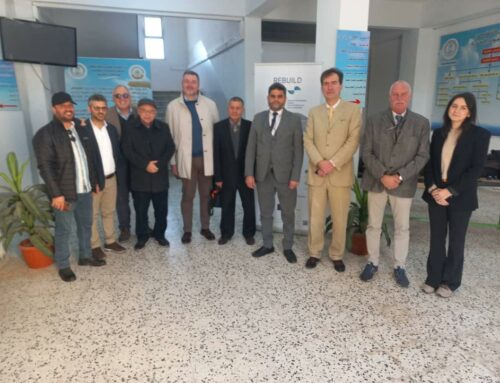Water resources management within REBUILD.
The topic of this article refers to REBUILD training cycle 7 and it is closely related to the topic of the REBUILD Pilot project on Environmental Safety
Dr. Iman Ali Al-Harsha, a researcher and expert in water resource management. Dr. Iman holds a Ph.D. in Water Management from the University of Exeter, UK, a Master’s degree in the same field from Karlsruhe University in Germany, and she is a lecturer at the faculty of Engineering, University of Sirte.
I have been the co-designer and facilitator of the Water Resources Management Training module, within the European-funded REBUILD project, training cycle n. 7. I am pleased to share my immense appreciation for the remarkable results achieved during the training program, which targeted trainees from 10 municipalities in Libya. It was a great pleasure to witness the outstanding engagement of the participants and officials from these municipalities, who showed deep enthusiasm and interest in all aspects of water management. The discussions were fruitful, with ideas and insights exchanged in a constructive and professional manner.
Libya faces many water-related problems, especially due to climate change, overuse of drinking water, and the lack of maintenance of sewage and drinking water networks. Additionally, there is limited use of rainwater for various purposes. As Libya struggles with water supply issues alongside a growing population, and the absence of accurate studies predicting water consumption rates, local municipal leaders have become responsible for addressing these challenges. Therefore, this session is a crucial tool for protecting local communities. The knowledge shared in such sessions helps increase awareness and presents strategies to tackle current problems, plan for the future, and find appropriate solutions.
—
Workshop Overview:
Water is one of the most valuable natural resources, and its effective management requires a delicate balance between consumption, conservation and sustainability.
Providing a specialized training course in the field of water resources in Libya is of great importance in raising awareness and developing the necessary skills to address these challenges. Through this course, trainees can understand the significance of water as a scarce resource and learn how to improve water use efficiency in various sectors such as agriculture, industry, and household consumption. Additionally, they will acquire knowledge on applying advanced water management techniques, including hydraulic modeling, water data analysis, desalination, and sustainability techniques for water conservation.
The workshop is designed to meet the needs of trainees and individuals interested in water resources, enabling them to apply best practices and strategies to ensure effective water management in Libya.
The workshop was delivered over two sessions, as follows:
- The first session (23/12/2024):
A comprehensive overview and introduction to the concept of water management were provided, along with an explanation of its key elements and objectives. Additionally, participants were introduced to the concept of sustainable development. The workshop also highlighted the challenges of water management in Libya, including water resource scarcity, the impacts of climate change, and infrastructure issues such as the deterioration of sewage and drinking water networks. The legislative framework for municipalities regarding water management was also discussed, with a focus on sustainable solutions for effective management.
Since solving water issues in Libya requires comprehensive and sustainable strategies, the course focused on key points, discussing them with trainees and providing real-life examples. One such example highlighted ways to reduce household water consumption waste, along with addressing the lack of awareness among residents in various Libyan cities regarding excessive drinking water consumption. A case study was also presented to determine the per capita water consumption rate in the city of Sirte during winter and summer, comparing it with the consumption rates in some developed cities. Possible solutions were explored to reduce consumption and ensure the efficient and sustainable preservation of water resources.
Several strategies applied to the case study in the city of Sirte were presented to enhance water use efficiency and reduce wastagepilot project, . These strategies included:
- Using water-efficient faucets
- Installing low-flush toilets
- Reusing greywater
The water consumption rate with these strategies was compared to the rate without them, demonstrating the impact on water efficiency.
- The second session (14/01/2025):
The second session was divided into two parts:
Part One: The discussion on various water management strategies was continued, focusing on rainwater harvesting and its potential benefits for household and agricultural use, as well as its role in reducing the wastage of potable water. Another key strategy discussed was green roofs, with an emphasis on how these two strategies were applied in the city of Sirte, leading to the collection and conservation of significant amounts of water for sustainable use.
Additionally, the discussion addressed issues related to sewage networks, particularly the widespread use of non-compliant septic tanks in Sirte and other Libyan cities. The impact of these tanks on groundwater contamination and the mixing of sewage with drinking water was analyzed, highlighting the risks posed to public health and the environment.
The Water Safety Plan concept was explained and discussed, with its components and objectives clearly outlined for the trainees. Additionally, emphasis was placed on the importance of joint efforts between governmental agencies and non-governmental organizations. The discussion also reinforced the need to enhance international cooperation to ensure effective and sustainable water management in Libya.
In the second and final part, time was allocated for discussion with the trainees by presenting some cases and challenges faced by municipalities in sewage networks and drinking water systems. Several questions were raised and discussed to clarify potential solutions.
One of the key topics addressed was the rise in groundwater levels in the city of Zliten, where the causes and possible solutions to mitigate this issue were explored. Ample time was given for this discussion, allowing for an in-depth analysis of the factors contributing to the problem, as well as a set of proposed solutions that could help address it. These solutions were also included in the training materials to ensure their future applicability.
Conclusion:
The future of water security in Libya depends on the adoption of comprehensive and sustainable strategies. Through community awareness, the implementation of modern technologies, and the promotion of both local and international cooperation, water availability for future generations can be ensured. This course served as a fundamental step in raising awareness and developing innovative solutions, contributing to the establishment of a more efficient and sustainable water management system in Libya.




